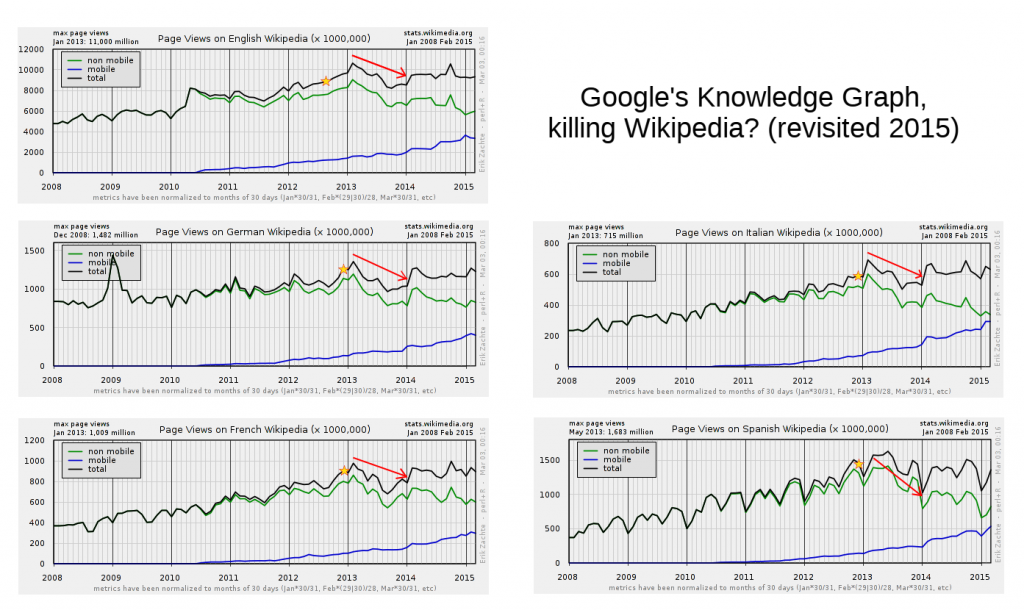Google has released a report that discusses how to rank pages by facts instead of links. If this happens, it would be a major change for the Google search engine, which traditionally uses links as an indicator of relevance. In fact, it was the PageRank algorithm that made Google so important in the first place and allowed the company to surpass competitors like Yahoo.

Google Ranking Factors
Today, Google uses more than 200 signals to determine page rank, but links are still an important factor. How important is unclear, especially because Google is showing more and more content and answers directly as search results and because this differs per industry in terms of authority, relevance and the number of backlinks. The Google algorithm is also constantly changing, which also increases or decreases the influence of the backlinks. Of course, the report does not mean that Google has actually implemented this ranking strategy or will do so. The company has numerous patents, not all of which are in use. Still, the fact that Google has done research into this, combined with the search engine changes already implemented, suggests that this is something Google could use in the future. The abstract of the report is as follows: The quality of Internet resources is traditionally determined on the basis of exogenous signals such as the hyperlink structure. We propose a new approach that depends on endogenous signals, namely the correctness of the factual information provided by the source. A source with few incorrect facts is considered reliable. These facts are automatically extracted from the source by methods that are also regularly used to build knowledge bases. We propose a way to distinguish errors from the extraction process from actual errors on the Internet resource itself.
Knowledge-Based Trust (KBT)
We call the calculated reliability score the Knowledge-Based Trust (KBT). Using synthetic data, we show that our method is able to determine the reliability of sources with high confidence. We then apply this to a database of 2.8 billion facts taken from the internet, and use this to estimate the reliability of 119 million pages. Manual evaluation of some of these confirms the effectiveness of the method. Conclusion Report: So they have confirmed the effectiveness of the method. That is interesting. And if that’s not enough to get you thinking, the report’s opening paragraph more or less sets links aside as a valuable signal: “Quality of sources is of great importance to search engines. This has traditionally been assessed using exogenous signals such as hyperlinks and search history. However, such signals mainly indicate how popular a web page is. For example, gossip websites often have high PageRank scores, but are generally not seen as reliable. In contrast, some less popular websites have very accurate information. Are you curious about what is meant by “gossip websites”? The designated section directs readers to this list of the top 15 most popular gossip sites:
- Yahoo!
- OMG!
- TMZ, EOnline
- People
- USMagazine
- WonderWall
- Gawker
- ZimBio
- PerezHilton
- HollywoodLife
- RadarOnline
- PopSugar
- WetPaint
- MediaTakeOut
- FishWrapper
Later in the report, it is noted that fourteen of these sites have a PageRank rating in the top 15% of all websites on the Web due to their popularity. However, their KBT is without exception in the lowest 50%. “In other words, they are seen as less trustworthy than half of all sites,” the report says. It is also stated that forums often have a low KBT, giving an example of inaccurate information on Yahoo Answers, which is often highly ranked in Google search results. The report notes that KBT as a signal is orthogonal to more traditional signals like PageRank. It also seems to refer to identifying content that is not relevant to the main topic of a website.
Search Results Can Potentially Improve Hugely With Implementation of Google Knowledge Based Trust
What Google proposes in the report could theoretically lead to some huge improvements in result rankings. There are some good points made, the most important of which is that popularity may not be the best indicator of relevance. The question remains, however, how well Google is really able to distinguish fact from fiction and outdated information. We’ve already seen the problems with this with the Knowledge Graph. If Google Knowledge Graph becomes the backbone of the search algorithms, it could potentially cause errors. However, Google uses so many signals – of which this is just one of it would be – that I personally think this is a better idea than PageRank. It is clear that links can be manipulated for Google rankings, and this signal could be more difficult for malicious parties to bypass. After all, facts are difficult to buy, although you may wonder how the advertising industry will deal with this. For now, at least, it’s all still theoretical; If anything, you should be more concerned about making your site mobile friendly. This is a signal that Google will start using it next month. If you have an Android app, you should definitely make sure that it is indexed: this can make a difference in the short term.

